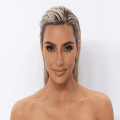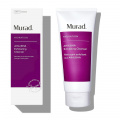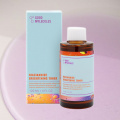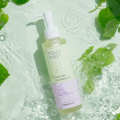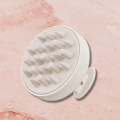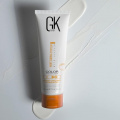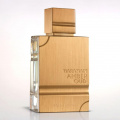Winter Hair Care Tips to Keep Your Hair Hydrated & Prevent Hair Woes
Effective winter hair care tips will help protect your locks from dryness and damage. Get ready to discover the secrets behind healthy and lustrous hair all season long.
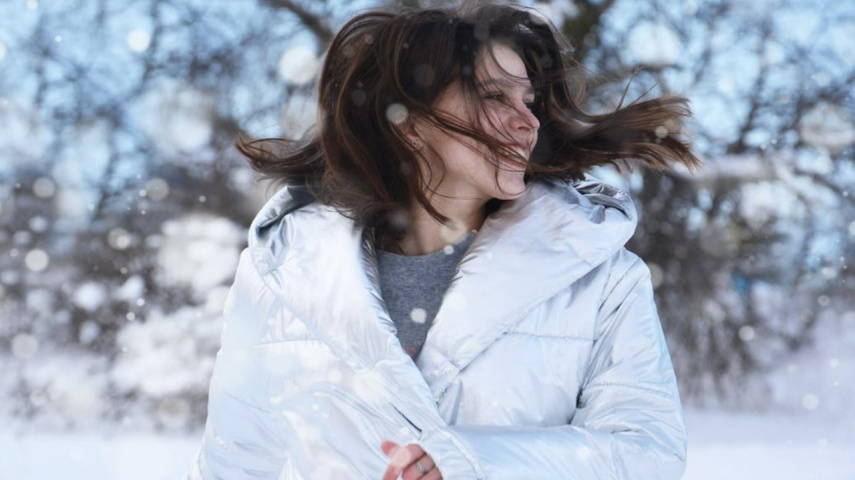
Winter is a truly enchanting season, where we find comfort in cozy moments wrapped in blankets by a warm fireplace. But while we're enjoying the season, our hair may not be as thrilled. You might need the right winter hair care tips, to shield your strands from dryness, and breakage. Also, the low humidity levels during winter months can lead to increased hair static. Thus it's important to address the specific challenges that come with this time of year. Check out our hair care tips to keep your locks and scalp happy during this chilly season.
11 Winter Hair Care Tips You Should Definitely Follow
Taking care of your hair during winter involves more than just a simple wash. A healthy scalp is crucial for maintaining beautiful locks. The cold weather can be harsh, causing your hair and scalp to lose moisture, resulting in dryness and frizz. Additionally, the low humidity levels can lead to brittle hair making it prone to breakage and hair loss. To combat these challenges, let's explore some effective winter hair care tips.
1. Limit Your Hair Wash
During winter, it's important to find the right balance when it comes to washing your hair. Overwashing can strip away the natural oils that keep your hair moisturized and protected. Instead, try extending the time between washes and aim for washing your hair about twice a week.
Using mild and sulfate-free shampoos is also recommended to maintain hair health. In most cases, opaque shampoos are gentler on the hair and scalp compared to clear shampoos. They are designed to be less harsh and preserve the natural oils of the scalp, promoting healthier hair growth (1). Likewise, try minimizing dry shampoos too. They can further irritate and cause dry scalp.
However, it's important not to completely avoid washing your hair as it can lead to product build-up. To address this, consider using zinc, salicylic acid, or tar-based shampoos for gentle exfoliation and to prevent build-ups.
2. Say NO to Hot Showers
While it's tempting to take hot showers in cold weather, it's not the best for your hair. Hot water can make your hair dry and make it more prone to breakage. To keep your hair healthy and moisturized, opt for lukewarm water when washing your hair.
Lukewarm water helps stimulate blood flow to the hair follicles, promoting hair growth and preventing excess oil. Once you've washed your hair, finish with a cool rinse. The cool water helps seal the hair cuticle and lock in moisture from your conditioner, leaving your hair shiny and hydrated.
3. Nourish Your Hair with a Conditioner
To keep your hair in top form during winter, it's essential to use a nourishing conditioner after every hair wash. This will not only improve hair manageability and add luster but also help decrease hair static electricity (1).
Apply the conditioner to the length of your hair, avoiding the scalp, and let it sit for a few minutes before rinsing it off.
If you don't have time for that, then incorporate a weekly leave-in conditioner into your winter hair care routine. This will provide deep moisturization to your hair and combats the effects of heat styling tools, as well as cold winds.
For vibrant and healthy strands, you may have to look for a creamy and nourishing conditioner containing ingredients like shea butter, jojoba, or argan oil.
4. Treat Your Hair with Masks And Oils
In most cases, conditioners can't penetrate your hair shafts. Thus try having oil treatments for a couple of hours instead of leaving them on all day. Look for lightweight and nourishing hair oils such as coconut, argan, or almond oil. Additionally, you can enhance your nourishment by using a serum after washing your hair.
Another great way to restore damaged and dry hair is by using a weekly hair mask. You can make a DIY mask using ingredients like honey, yogurt, or banana, or you can try store-bought hair products. Make sure you look for creamy and nourishing masks that provide deep hydration and repair for your hair.
5. Dry Your Hair Wisely

Avoid going outdoors with wet hair as it can freeze and break. If you're in a hurry, choose blow drying over leaving your hair wet. For a gentler drying experience, opt for microfiber towels instead of cotton towels as they cause less tangles and static.
Embrace the natural drying process and allow your hair to air dry. We understand that it may take longer in winter, so using a hair dryer with cold settings can minimize hair damage. Hot blow drying can strip away moisture from your hair, leading to damage and breakage (2).
6. Comb with Care
Choosing the right hair comb or brush is essential for maintaining your hair's health during winter. Opt for brushes with boar bristles or paddle combs as they effectively control frizz and leave your hair looking shiny and smooth. Avoid using plastic combs as they can increase static in your hair. Instead, opt for wooden combs, which minimize static electricity and make your hair easier to manage.
Also, to combat static hair during winter, it's important to use the right hair tools and minimize heat damage. Embracing heat-free styles like twists, braids, and buns as alternatives to using straighteners or curling irons may help.
7. Cover Your Hair

Wearing a hat may prevent breakage caused by winter. You can wear scarves, hats, or beanies to protect your hair from the chill weather. It's not only practical but also adds a stylish touch to your winter outfit.
However, be mindful of the material of your hat. Woolen or acrylic fabrics can create friction and damage your hair. To avoid this, you can use a silk or satin cap, or use a satin/silk fabric underneath your woolen cap. This helps reduce friction and prevents static.
Just remember to choose breathable fabrics that allow air circulation, as trapped heat can create a sweaty environment and potentially lead to a flaky scalp and dandruff.
8. Keep Your Humidifier And Dryer Sheets Handy
The cold and dry air during winter can be harsh on your hair. It can cause dryness, dullness, and flakiness. In such cases, using a humidifier can make a big difference. A humidifier adds moisture to the air, helping to keep your hair hydrated and healthy. The increased moisture in the air prevents your hair from drying out too quickly, keeping it softer and more manageable.
Another trick to combat winter hair frizz is to use a dryer sheet. Simply run a dryer sheet over your hair after removing your winter hat. This will help control static and leaves healthy hair.
9. Don’t Skip Your Regular Trims
Trimming your hair is crucial for keeping it healthy and avoiding those dry and split ends during winter. The dryness of cold weather and the roughness of your winter caps can team up to create more rough ends in your hair.
Hence, don't forget to schedule those regular hair trims every 8 to 10 weeks. It may not sound like a big deal, but it's crucial for keeping your hair fresh and fabulous. By snipping off about half an inch from the bottom, you can avoid those split ends which may increase static and frizz during the colder months.
10. Say NO to Hair Colors And Treatments

In winter, it's important to avoid drastic hairstyle changes and bleaching. Just like your skin, your hair can also suffer from dryness due to the cold weather. This dryness and dehydration caused by the winters can ultimately impact the vibrancy of your hair color. Also, to maintain healthy and vibrant hair, it's best to refrain from harsh treatments and protect your hair from the damaging effects of winter.
11. Take Care of Your Diet And Stress Levels
Winter can be a hectic festive time, but it's important to prioritize your hair health. The chill climate may also increase one's stress levels and lead to depression (3).
If you're under constant stress and not eating well, it can take a toll on your hair, leading to hair loss. Taking care of your hair starts with maintaining a balanced diet that includes essential nutrients like zinc, iron, proteins, and vitamins. Also, make sure you include silica-rich foods like green leafy vegetables, beans, and horse gram into your meals as they may promote hair growth and strength (4).
Conclusion
Following these winter hair care tips is essential to keep it healthy, moisturized, and protected. During the winters, the cold and dry air can strip moisture from your hair, leaving it dry and prone to damage. To combat this, it's important to stay hydrated, nourish your hair with oils and masks, and use the right tools and techniques for your hair type. By giving your hair this little extra care, you can prevent dryness and damage and have fabulous hair all winter long.
ALSO READ: Hair Care: 5 HOMEMADE hair masks for winter season you need to opt for right away





 JOIN OUR WHATSAPP CHANNEL
JOIN OUR WHATSAPP CHANNEL























